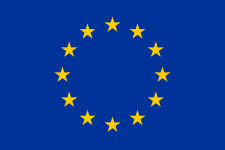Polarisation can be understood as a process of sharpening differences between groups in society that can result in increased tensions. It is a potential amplifying cause of the diverse psychological and social factors that make people vulnerable to radicalisation. [1]
In order to effectively prevent radicalisation we need to understand the dynamics of polarisation: how do ‘us-and-them thinking’, social division and hostility gain ground in our communities? And how can we effectively intervene into such extremist dynamics and build bridges to foster social cohesion?
Objectives
The overall objectives of this project are to raise awareness among local actors and strengthen their capacity to reduce individual and collective vulnerability to radicalisation while at the same time mitigating the phenomenon of polarisation:
- strengthen local polarisation detection and management tools
- assist local authorities in the development of actions to tackle tensions and social unrest trends
- promote community-based initiatives that imply cooperation between different public services and private actors
- bring together European local authorities and experts willing to address polarisation at the local level
Activities
Four stages are planned throughout the project:
- Development of tools to assess and monitor polarisation at the local level
- Design and implementation of 13 Local actions in 7 European countries
- Assessment of polarisation, using a methodological framework and tailor-made tools
- Development of targeted prevention actions to mitigate local phenomena of polarisation
- Project meetings and seminars in order to enable an accurate follow-up of local actions’ state of progress and exchanges between the 13 cities
Production of a publication and webconference
Webconference
“Mitigating Polarisation – lessons from the restorative justice approach” – Thursday, 30 April
Simultaneous interpretation EN-FR will be provided
In this webconference, we will approach the topic from the perspective of restorative justice. Key RJ concepts and measures such as accountability, mediation, respect and dialogue have a long and successful history in alleviating the harms of violence and crime. What can we learn from the approach when we seek to mitigate polarisation?
Programme
9h30 – 09h45 Welcome and Introduction to the Webconference
Eszter Karacsony & Moritz Konradi
9h45 – 10h30 Keynote presentation “Mitigating polarisation –
lessons from the restorative justice approach”
Tim Chapman – Chair of the European Forum for Restorative Justice, BRIDGE expert
10h30 – 11h00 Q&A
11h00 – 11h30 Break
11h30 – 13h00 Roundtable discussion “Mitigating polarisation – how
to intervene and prevent?”
Discussion with BRIDGE partners and experts
13h00 – 13h15 Closing Remarks
Consortium
Efus is the leader of the project
Partners
Brussels (BE), Departmental council of Val d’Oise (FR), Düsseldorf (DE), Government of Catalonia (ES), Genk (BE), Igoumenitsa (GR), Leuven (BE), Reggio Emilia (IT), Region of Umbria (IT), Rotterdam (NL), Terrassa (ES), Stuttgart (DE), Vaulx-en-Velin (FR)
Ufuq (DE), Real Instituto Elcano (ES)
Duration
January 2019 – December 2020 (24 months)
Financing
 The project is financed at 90% by the European Union Internal Security Fund – Police
The project is financed at 90% by the European Union Internal Security Fund – Police
Contacts
Moritz Konradi, Programme Manager: konradi@efus.eu
Emilie Petit, Programme Manager: petit@efus.eu
[1] For more information, read : RAN Polarisation Management Manual (2017) or Bart Brandsma, Polarisation. Understanding the Dynamics of Us versus Them (2017).



